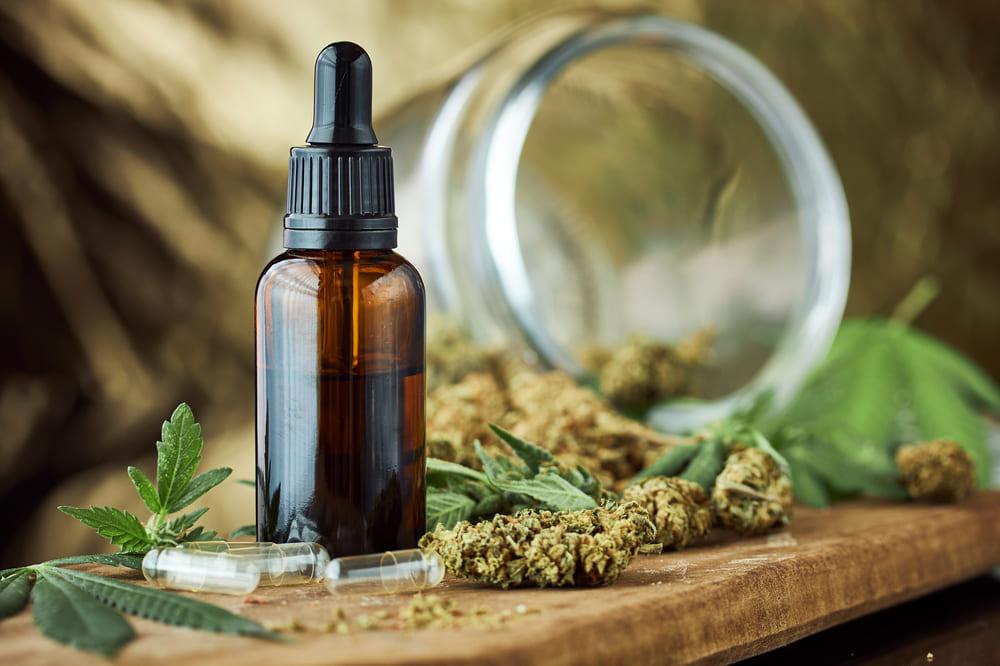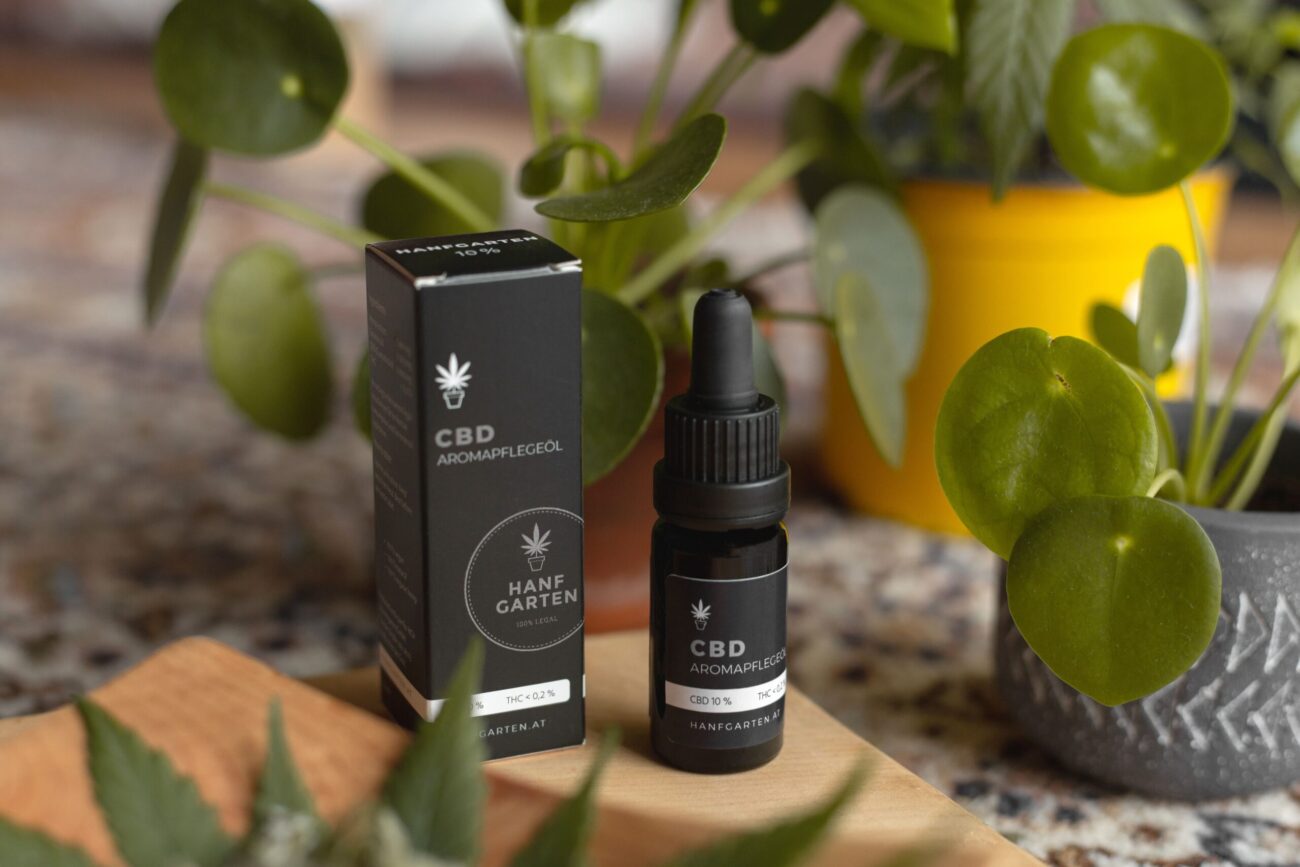Cannabis oil, particularly CBD oil, has taken the wellness world by storm in recent years. Derived from the cannabis plant, CBD (cannabidiol) is a non-psychoactive compound known for its therapeutic properties. Unlike THC (tetrahydrocannabinol), CBD doesn’t produce a “high,” making it a popular choice for those seeking natural relief without mind-altering effects. From easing anxiety to managing chronic pain, CBD oil offers a wide range of potential health benefits.
However, like any supplement, it’s important to understand its properties, uses, and potential contraindications.
Let’s explore the world of CBD oil!
What is CBD Oil?
CBD oil is a concentrated extract derived from the hemp plant, a variety of cannabis that contains low levels of THC. It’s typically mixed with a carrier oil, such as coconut or hemp seed oil, to create a product that’s easy to use. CBD interacts with the body’s endocannabinoid system (ECS), a complex network of receptors that helps regulate functions like mood, pain, sleep, and immune response.
Key Properties of CBD Oil
CBD oil is rich in cannabinoids, terpenes, and other bioactive compounds that contribute to its therapeutic effects. These include:
- Cannabidiol (CBD): The primary non-psychoactive compound with anti-inflammatory, analgesic, and anxiolytic properties.
- Terpenes: Aromatic compounds that enhance the therapeutic effects of CBD and provide additional benefits like relaxation and focus.
- Fatty Acids: Omega-3 and omega-6 fatty acids that support heart and brain health.
- Antioxidants: Compounds that protect cells from oxidative stress and damage.
7 Benefits of CBD Oil
- Relieves Pain and Inflammation
CBD is widely recognized for its analgesic and anti-inflammatory properties. It can help manage chronic pain conditions like arthritis, fibromyalgia, and multiple sclerosis by interacting with ECS receptors and reducing inflammation. - Reduces Anxiety and Depression
CBD has been shown to have calming effects on the nervous system, making it a natural remedy for anxiety and depression. It works by influencing serotonin receptors in the brain, which regulate mood and social behavior. - Improves Sleep Quality
For those struggling with insomnia or restless sleep, CBD oil can promote relaxation and improve sleep patterns. Its calming effects help reduce anxiety and pain, which are common culprits of sleep disturbances. - Supports Neurological Health
CBD has shown promise in managing neurological disorders like epilepsy, Parkinson’s disease, and Alzheimer’s. In fact, the FDA has approved a CBD-based medication, Epidiolex, for treating rare forms of epilepsy. - Promotes Heart Health
CBD may help lower blood pressure, reduce cholesterol levels, and improve circulation, all of which contribute to better cardiovascular health. Its anti-inflammatory and antioxidant properties also protect the heart from damage. - Eases Skin Conditions
Topical CBD oil can help manage skin conditions like acne, eczema, and psoriasis. Its anti-inflammatory properties reduce redness and irritation, while its antioxidants promote healthy skin. - May Help with Cancer-Related Symptoms
While more research is needed, some studies suggest that CBD can help alleviate cancer-related symptoms like nausea, pain, and loss of appetite. It may also enhance the effectiveness of traditional cancer treatments.
Potential Contraindications and Side Effects
While CBD oil is generally well-tolerated, it’s not without potential risks. Here are some contraindications and side effects to be aware of:
- Drug Interactions
CBD can interact with certain medications, including blood thinners, antidepressants, and seizure medications. It may alter how these drugs are metabolized, leading to potential complications. Always consult a healthcare provider before using CBD if you’re on medication. - Pregnancy and Breastfeeding
The effects of CBD on pregnant or breastfeeding women are not well-studied, so it’s best to avoid using it during these periods. - Liver Health
High doses of CBD may cause liver toxicity in some individuals, particularly those with pre-existing liver conditions. Regular monitoring is recommended for long-term use. - Dry Mouth and Drowsiness
Common side effects of CBD include dry mouth, drowsiness, and mild digestive issues like diarrhea. These are typically mild and resolve on their own. - Low Blood Pressure
CBD may cause a temporary drop in blood pressure, which can lead to lightheadedness or dizziness, especially in those already taking blood pressure medications. - Quality and Dosage Concerns
Not all CBD products are created equal. Poor-quality oils may contain contaminants or inconsistent levels of CBD. Always choose products from reputable brands that provide third-party lab testing results.
How to Use CBD Oil
CBD oil is versatile and can be used in several ways:
- Sublingual: Place a few drops under your tongue for fast absorption.
- Topical: Apply directly to the skin for localized relief.
- Edibles: Add to food or beverages for a convenient and tasty option.
- Capsules: Take as a supplement for consistent dosing.
Start with a low dose (5-10 mg) and gradually increase until you achieve the desired effects. Consult a healthcare professional for personalized guidance.

CBD oil is a powerful natural remedy with a wide range of potential health benefits. From reducing pain and anxiety to supporting heart and brain health, it’s no wonder this ancient plant extract has become a modern wellness staple. However, it’s important to use CBD oil responsibly, especially if you have underlying health conditions or are taking medications. By choosing high-quality products and consulting with a healthcare provider, you can safely incorporate CBD oil into your wellness routine.
Have you tried CBD oil?
Share your experiences and favorite ways to use it in the comments below! 🌿

